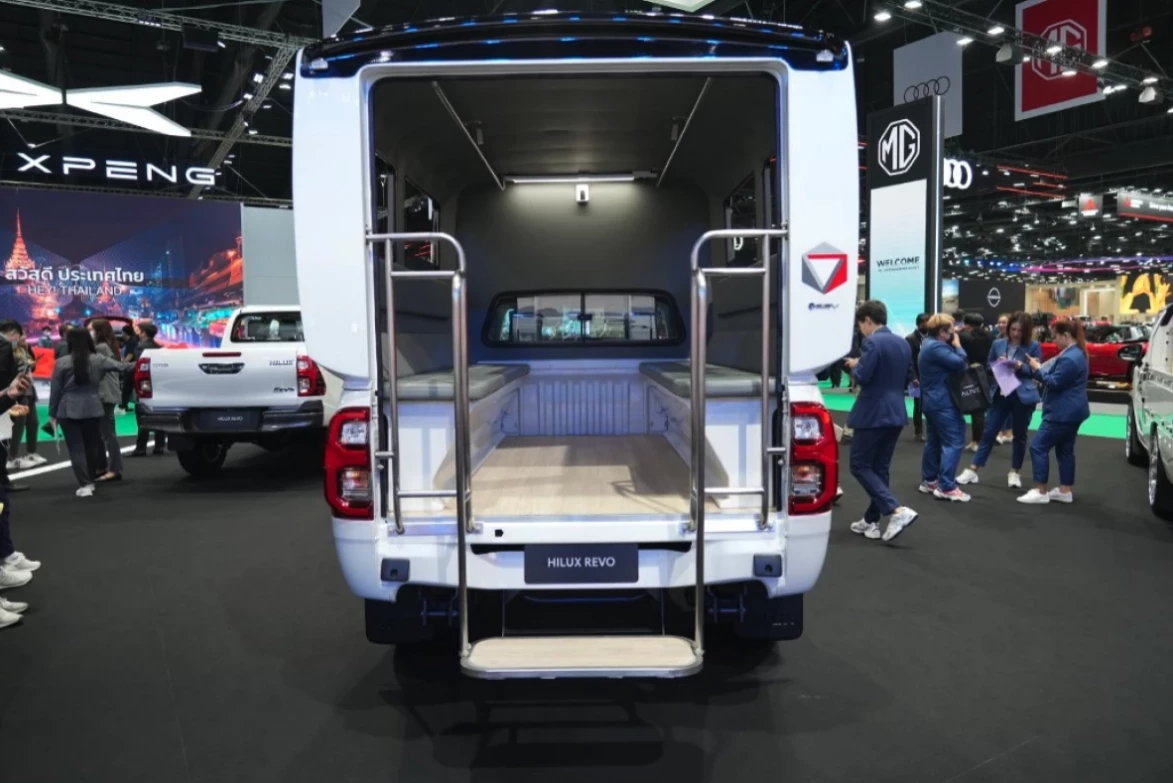Toyota has been developing an all-electric Hilux pickup in Thailand for over a year, and the prototype truck has now been turned into a slick, little passenger-mover. Like a classic Land Cruiser Troopy, the new mini-bus seats two rows of passengers in back, taking advantage of the city-centric, zero-emissions Hilux Revo BEV platform as a cleaner short-distance transportation solution.
Toyota Motor Thailand went all in on showcasing the current Hilux Revo and Champ family at the Bangkok International Motor Show that wrapped up over the weekend, so it's no surprise it had a Hilux Revo BEV prototype on show. However, the all-electric midsize pickup looked quite different than it did the first time it showed up on Thai soil, converted with a fiberglass pickup bed topper towering well over the driver's cab.
Between its height and the large, wide windows taking up the bulk of its sides, it's clear from first look that the new build isn't a basic commercial service body. Step around back, and you'll see it's actually meant for accommodating passengers inside the bed, offering a pair of vis-a-vis benches running the length of the sidewalls. Called a songthaew in Thailand, the configuration is a truck-based share taxi sized and purposed between a taxicab and larger bus.

Last November, Reuters reported that Toyota planned to test a fleet of Hilux BEV songthaews this year in the resort city of Pattaya. At the Bangkok show, the news service followed up with more specifics, saying that Toyota would send a fleet of 12 Hilux BEVs to Pattaya for public transportation trials in April. The same report indicated Toyota will begin mass-producing the Hilux BEV by the end of 2025.
Toyota has previously described the Hilux BEV as an "urban-focused two-wheel drive pickup designed for short-range use, featuring a wealth of proprietary technologies under the skin." It has not offered many specifics beyond that, but reports from Australian media members who got to preview the truck last year suggested the automaker's internal plans call for a range of roughly 200 km (124 miles) as an initial target.
Source: Toyota Motor Thailand







